A good foot massage doesn’t just feel nice—it can leave you calm, quiet, and ready for rest. But why does it make you feel so sleepy?
Foot massage helps slow your heart rate, ease muscle tension, and activate the nervous system in a way that promotes deep relaxation. It also improves circulation, which helps your body feel more balanced and at ease.
In this article, you’ll learn how foot massage works, why it helps you unwind, and how to use it as part of a calming nighttime routine.
Table of Contents
What is Foot Massage?
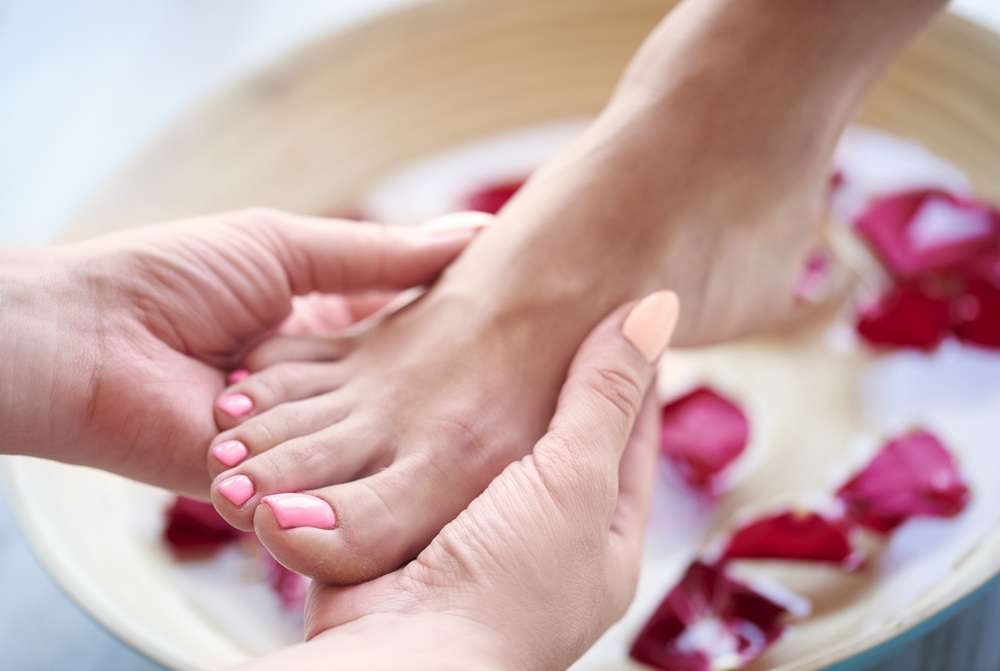
Foot massage is a type of massage that focuses on treating the foot and lower leg area. It is usually done with the hands, but can also be done with various tools and techniques, such as a massage roller or a foot spa. During a foot massage, the therapist will use various strokes, pressures, and techniques to target the muscles and soft tissues of the foot. This can help to relieve pain, reduce tension, and improve circulation.
Foot massage can also be used to help relieve stress and anxiety, improve sleep, and promote relaxation. It is believed that foot massage can help to activate the parasympathetic nervous system, which is responsible for calming the body and reducing stress. This, in turn, can help you to fall asleep more easily.
Why does foot massage make you sleepy?
Foot massage is thought to help you relax and fall asleep more easily by stimulating the pressure points in the feet. This stimulation helps to reduce stress and tension, allowing your body to relax and your mind to drift off. It is also believed that the massage encourages the release of serotonin, the hormone associated with sleep and relaxation.
Benefits of Foot Massage
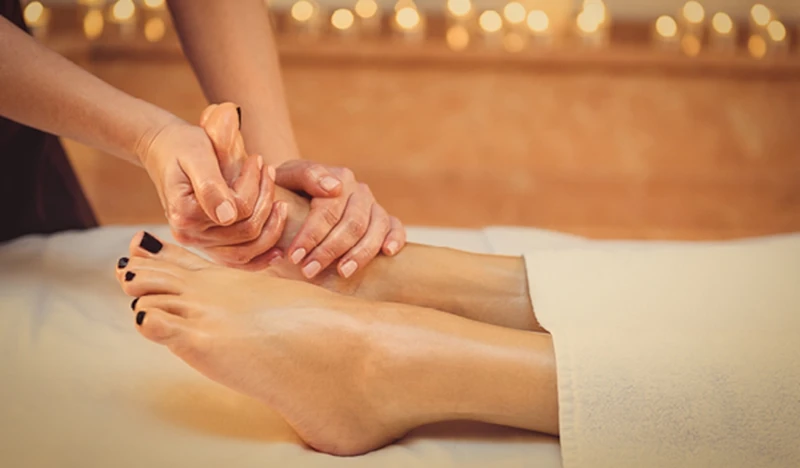
Improved circulation
Foot massage has been found to improve circulation, as it increases oxygen and nutrient delivery to the muscles and tissues in the feet. This can help to reduce swelling, improve mobility, and reduce pain. It can also help to improve the overall health of the body, as better circulation helps to remove toxins.
Relaxation & emotional regulation
Foot massage can have powerful effects on the body and mind. It helps to reduce tension, increase relaxation, and reduce stress. It has been found to be beneficial for those suffering from depression, anxiety, and other mental health issues.
Stress relief
Foot massage can help to reduce levels of stress hormones in the body, such as cortisol and adrenaline. This can help to reduce feelings of stress and anxiety, and promote feelings of calm and relaxation.
Improved sleep
Foot massage has been found to be effective in improving sleep quality. It helps to reduce stress and tension, which can make it easier to fall asleep and stay asleep. It can also help to reduce pain and improve circulation, which can make it easier to get comfortable and drift off into a peaceful sleep.
Why Does Foot Massage Make You Sleepy?
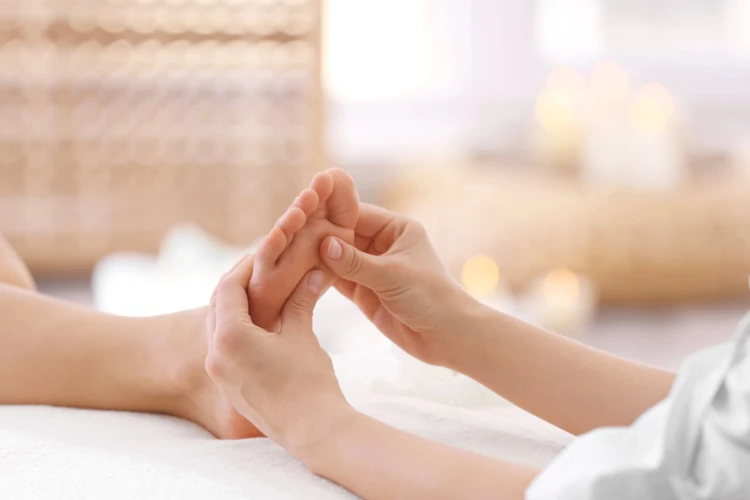
Reduction of stress hormones: Foot massage can help to reduce levels of cortisol, the primary stress hormone. Cortisol, which is released in response to stress, can cause feelings of anxiety and agitation. By reducing cortisol, foot massage can help to reduce stress and induce a sense of relaxation and calm.
Improved circulation: Foot massage also helps to promote improved circulation throughout the body. Increased circulation helps to transport oxygen and other important nutrients throughout the body. This improved circulation can help to improve overall energy levels, reduce fatigue, and promote deep, restful sleep.
Foot Massage Techniques
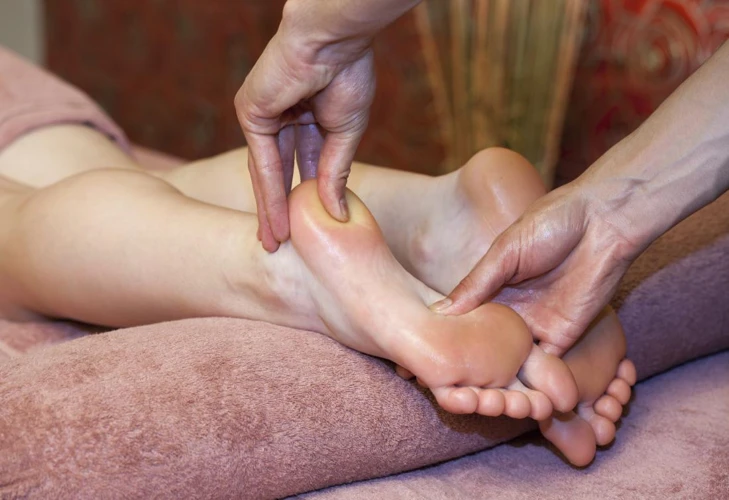
Reflexology
Reflexology is a technique which works on the principle of pressure points in the feet. Pressure is applied to specific points to relieve pain and tension in corresponding parts of the body. This technique is said to be beneficial in treating a wide range of ailments, from headaches to digestive problems.
Shiatsu Massage
Shiatsu massage is a Japanese-style massage that involves applying pressure to certain points on the feet. This technique is believed to help improve the flow of energy throughout the body, promoting relaxation and improved circulation.
Acupressure Massage
Acupressure massage is similar to reflexology, but it uses gentle pressure on the feet to stimulate certain points. This technique is said to help relax the body and reduce stress. It is also thought to help improve circulation and promote healing.
Tips for Getting the Most Out of Foot Massage
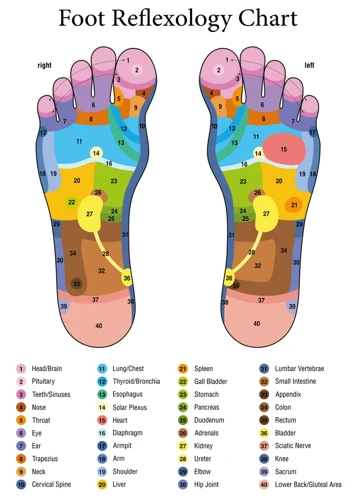
- Go to a Professional Massage Therapist: A professional massage therapist has the skill and expertise to ensure that you get the most out of your foot massage. They will be able to identify and target areas of tension that you may not be aware of.
- Communicate: Make sure to communicate your needs to your massage therapist. Let them know if the pressure is too light or too strong for you. This will ensure that you get the most benefit from your massage.
- Drink Water: Drinking plenty of water before and after your foot massage can help to flush out toxins in your body, allowing your muscles to relax more deeply.
- Wear Loose Clothing: Wearing loose, comfortable clothing will make it easier for your massage therapist to access the areas that need to be worked on.
- Allow Time to Relax: Take some time before and after your foot massage to relax and let the massage work its magic. This will help you to get the most out of your massage.
Potential Risks and Side Effects of Foot Massage
Foot massage is generally safe, but there are a few things to watch out for—especially if you have certain health conditions.
✅ When to Avoid Foot Massage
- Open wounds or infections
- Foot fractures or severe injuries
- Blood clots or circulation disorders
- Active inflammation or swelling (edema)
If you have a pre-existing condition, talk to a healthcare provider before getting a foot massage.
✅ Common Side Effects
- Mild soreness after the massage (usually short-lived)
- Skin irritation from oils or lotions (especially if they contain fragrances)
- Temporary discomfort if too much pressure is applied
Frequently Asked Questions
What are the Potential Health Benefits of Foot Massage?
Foot massage has been known to reduce stress, improve circulation, and help with relaxation. It also has many other potential health benefits, such as:
- Reduced Pain: Foot massage can reduce pain associated with conditions like plantar fasciitis and arthritis.
- Improved Mobility: It can improve range of motion in the ankles and feet, helping to relieve tension and stiffness.
- Enhanced Sleep Quality: Foot massage can help improve sleep quality, making it easier to fall and stay asleep.
- Better Mood: Foot massage can reduce feelings of stress and anxiety, and boost overall mood.
- Improved Immune Function: Massaging the feet can help boost the immune system and reduce inflammation.
What Type of Massage is Most Beneficial for Inducing Sleep?
Swedish massage is widely considered the most effective type of massage for improving sleep. It uses slow, gentle strokes that calm the nervous system, ease muscle tension, and boost circulation. This helps the body relax and shift into a restful state.
Swedish massage also helps lower anxiety and lift your mood, making it easier to fall asleep and stay asleep. If you’re looking for a natural way to unwind before bed, Swedish massage is a great place to start.
How Often Should I Get a Foot Massage?
For general relaxation and circulation, 2–3 times a week is ideal.
If you’re managing pain or a specific condition, daily short sessions (10–15 minutes) can help.
Listen to your body—consistency matters more than intensity.
Foot Massage vs. Foot Reflexology: What’s the Difference?
While both involve working on the feet, foot massage and foot reflexology are not the same.
✅ Foot Massage
- Focuses on relaxing muscles, tendons, and ligaments
- Uses strokes and pressure to soothe sore or tired feet
- Aims to ease tension and improve circulation
- Can be done with or without oil
- Typically performed by a massage therapist
✅ Foot Reflexology
- Applies pressure to specific points on the feet
- These points are believed to correspond to organs and systems in the body
- Aims to support overall wellness, not just the feet
- Often uses oil or lotion
- Usually done by a trained reflexologist
In short:
Foot massage is about physical relief in the feet.
Foot reflexology is about stimulating points that may benefit the whole body.
Are There Any Contraindications to Getting a Foot Massage?
People with certain medical conditions such as diabetes, varicose veins, and nerve problems should consult a doctor before getting a foot massage. People with open sores or wounds should avoid getting a foot massage until the wound has healed. Those with blood clots, deep vein thrombosis, and circulatory problems should not get a foot massage. If a person experiences any pain or discomfort during the massage, they should immediately let the massage therapist know.
Conclusion
Foot massage offers more than just relief for tired feet. It helps improve circulation, reduce pain, lower stress, and support better sleep. It may even boost your mood by encouraging the release of calming hormones like serotonin and melatonin.
Whether you use your hands or a foot massager, a few minutes of care each day can make a real difference in how you feel—physically and mentally.
Ready to try it for yourself?
Take a look at our top-rated foot massagers to find the best one for your needs.
Your feet will thank you.
📚References
⚠️ Disclaimer:
This article is for informational purposes only and does not constitute medical advice. Always consult with a licensed healthcare provider or certified massage therapist before beginning any new treatment, especially if you have pre-existing health conditions or concerns.
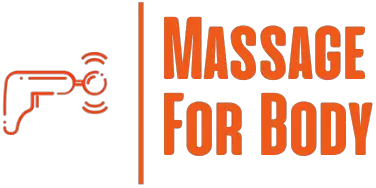
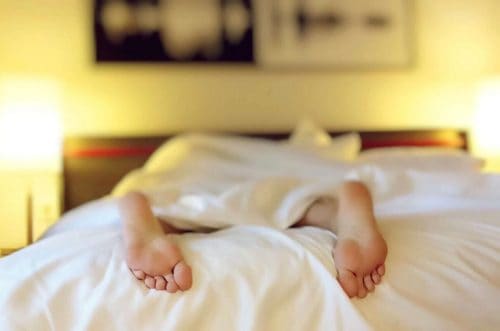
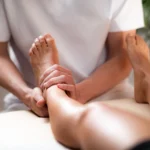
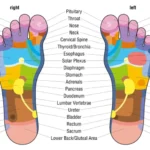
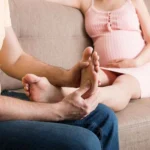
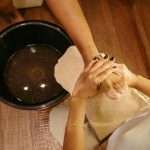

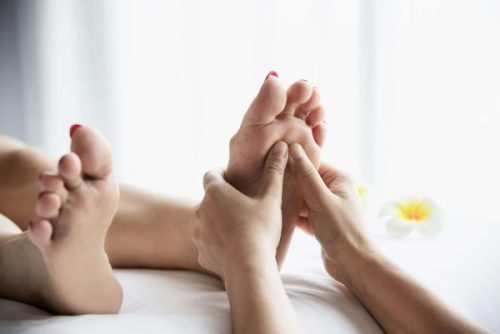


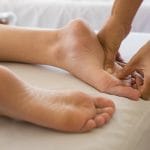
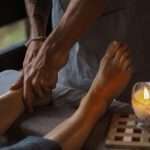
Very interesting topic, thanks for putting up.